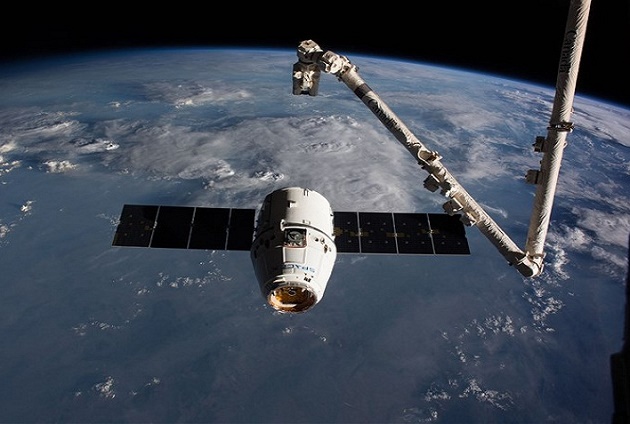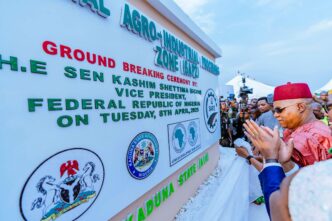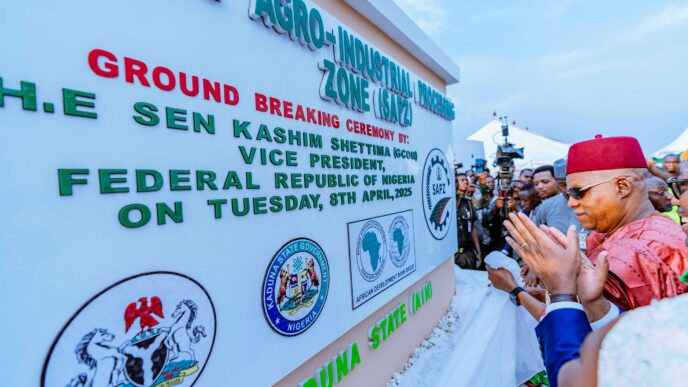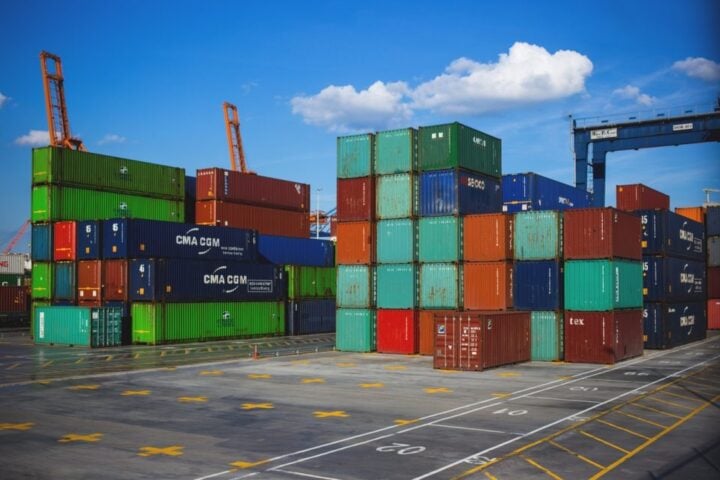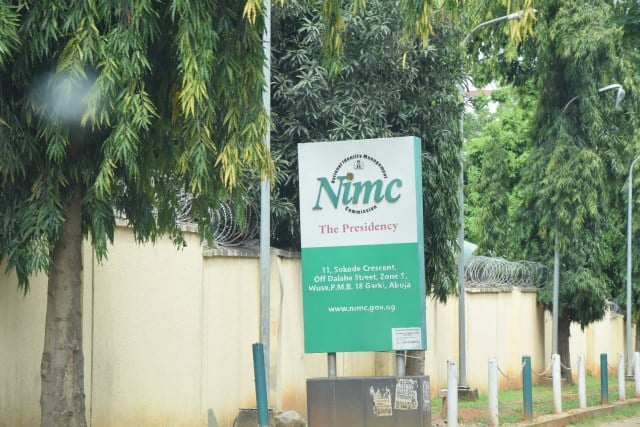NASA to allow tourists visit International Space Station — at $35,000 per night
The federal government says Nigeria could generate over $200 billion annually through space regulation and licensing.
Uche Nnaji, minister of innovation, science, and technology, spoke on Tuesday at a one-day sensitisation and stakeholders’ engagement on the commencement of space regulation, spectrum management, and licensing in Abuja.
The workshop was organised by the National Space Research and Development Agency (NASRDA).
Nnaji described the initiative as a bold step toward establishing a competitive space industry that could contribute directly to Nigeria’s economic development and technological leadership.
Advertisement
“With this space regulation and licensing, companies such as Starlink, including DSTV who pay peanuts for using space products and short-changing Nigerians will be regulated and licenced,” he said.
“You can be assured that yearly, following the laid down strategies, we will be looking at realising over $200 billion annually with increment yearly of 18 to 20 percent.”
The minister announced that President Bola Tinubu had approved the integration of space technology into revenue-generation mechanisms, particularly in the oil and gas sector.
Advertisement
“This will ensure that any ship coming into this country, even when they switch off their ignition and glide-in without paying bunker fees and other payments, and then head out, space technology can detect their entry for necessary payments,” he said.
“So we are looking at over 20 billion dollars yearly income through that and that is part of the many reforms that is coming under this regulation.”
According to Nnaji, space is no longer just a domain for dreamers but a critical tool for innovation and national security, enabling advancements in communications, remote sensing, navigation, and data systems.
He noted that space technology now plays a vital role in modern economies.
Advertisement
“Our task is to ensure a clear regulated ecosystem where both public and private players can thrive and a space sector that drives innovation, attracts investments and delivers real impact for our people,” he said.
The minister said the federal government, through the 15-member National Space Council, is actively working to update the national space policy to include relevant areas as obtainable in modern space operations.
‘INCREASING NUMBER OF SATELLITES NECESSITATED NEED FOR PROPER REGULATION’
In his remarks, Matthew Adepoju, director-general of NASRDA, said the workshop was designed to find ways for the implementation of the 2015 regulations on licensing and supervision of space as enshrined in the agency’s Act of 2010.
Advertisement
Adepoju said the increasing number of satellites and space-based assets necessitated the need for proper regulation and commercialisation to drive economic growth.
“These regulations provide a comprehensive framework, ensures compliance with national and international space laws, promotes transparency in licensing processes, enhances security and safety in space operations,” he said.
Advertisement
“Space licensing and regulation can serve as a revenue-generating avenue for the Nigerian government.”
The director said implementing a structured licensing system would enable the agency to enforce appropriate fees and charges for satellite launches, spectrum management, and data services in Nigeria.
Advertisement
He added that the approach would facilitate the commercialisation of space-related services and attract both local and foreign investments into the country’s space industry.
Also speaking on space regulation and spectrum management, Olisa Agbakoba, a senior advocate of Nigeria (SAN) stressed the need to revise the national space policy, which was last updated in 2000.
Advertisement
He also stressed the importance of domesticating key international space treaties that Nigeria had ratified but had yet to incorporate into national laws.
“We can capture a huge chunk of the market, but we need to have the right regulatory, legal and institutional frameworks in place right now,” Agbakoba said.
“There are four or five important treaties that we need to domesticate because you may ratify, but if it is not passed by the National Assembly, it is not law.
“There is the Outer Space Treaty 1967 and we ratified it in 1967, Rescue Agreement, the Liability Convention and the Registration Convention of 1974 and the Moon Agreement.”
Umar Bindir, secretary to Adamawa state government, while speaking on the imperative of space regulation in Nigeria, called for harmonised translation of scientific knowledge to practical solutions.
Bindir also said regulatory frameworks should be structured to align with national development goals, fostering innovation and growth.
